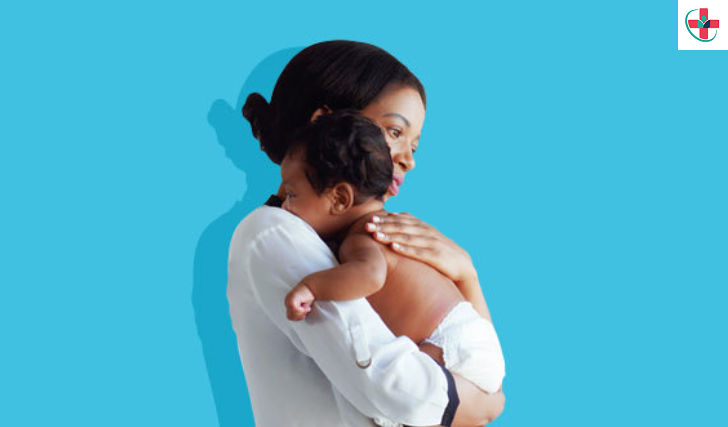Most women grow up dreaming of becoming a mother, but what they don’t expect is the devastating postpartum depression they might suffer after childbirth. Expecting moms have even confirmed that they experienced Prepartum depression.
Miraculously, seven-month-old baby Thayller has survived being thrown off a 118ft bridge by her depressed mother.
In the first days and weeks after childbirth, a new mother goes through a variety of emotions. She may feel many wonderful feelings including awe, joy, and bliss. She may also experience difficult feelings, including sadness. Sad feelings and crying bouts that follow childbirth are known as the “baby blues.” The baby blues are common and tend to decrease within a week or two. This type of sadness is often attributed to the dramatic hormonal changes that follow childbirth.
What is postpartum depression?
Sometimes it can be hard to tell the difference between clinical depression and the normal stress and exhaustion of new parenthood. But if your feelings of sadness or despair are so powerful that they prevent you from being able to do your daily tasks – such as caring for yourself and others – you could have PPD.
About 10 percent of new mothers develop PPD, but some experts believe the number is even higher because many women don't seek treatment. If you're struggling, see your healthcare provider right away for a mental health screening.
According to the American Psychiatric Association, postpartum depression can begin in the weeks after pregnancy or even before. (About half of women with PPD have symptoms during pregnancy.)
If your provider thinks you have depression any time after you give birth, you may be referred to a counselor and prescribed antidepressant medication, if necessary, or referred to a psychiatrist for treatment. Whether you're diagnosed with depression before, during, or after pregnancy, getting treatment is important.
What are the signs and symptoms of postpartum depression?
According to the Centers for Disease Control and Prevention (CDC), up to 20 percent of new mothers experience one or more symptoms of postpartum depression. Similar to other types of depression, PPD can include a number of symptoms:
- Feeling down or depressed for most of the day for several weeks or more
- Feeling distant and withdrawn from family and friends
- A loss of interest in activities (including sex)
- Changes in eating and sleeping habits
- Feeling tired most of the day
- Feeling angry or irritable
- Having feelings of anxiety, worry, panic attacks or racing thoughts
Postpartum depression symptoms may start in the first few weeks following childbirth. Sometimes, symptoms of PPD do not begin until months after birth.
Postpartum psychosis is a related mental health condition that can also develop after childbirth. This rare and serious condition includes symptoms of hallucinations (seeing or hearing things that aren’t there), paranoia, and, at times, thoughts of harming one’s self or others. Some mothers have frequent thoughts of harming their children.
If you are experiencing signs of postpartum depression or postpartum psychosis, please tell someone. These conditions can be effectively treated and often respond best when treatment is started right away.
What causes postpartum depression?
A number of factors can lead to postpartum depression. Women with a history of depression and other mental health conditions face a higher risk of PPD. The following factors can also increase one’s risk:
- Hormonal changes that follow childbirth
- Emotional stressors, including financial strain, job changes, illness, or the death of a loved one
- Changes in social relationships, or lack of a strong support network
- Raising a child with special needs or an infant that is challenging to care for
- Having a family history of mental health issues
While some women are predisposed to experiencing postpartum depression, PPD can affect anyone, including women who experience a normal delivery and give birth to a healthy child.
Since a personal history of depression can increase the risk of postpartum depression, let your doctor know if you have struggled with depression or anxiety in the past. By taking special precautions, you may be able to reduce your risk of developing PPD.
How is postpartum depression treated?
If you are having symptoms of postpartum depression, talk to your doctor or a mental health professional. Your doctor may recommend that you meet regularly with a counselor or that you start taking antidepressant medications. Often, both types of treatment are recommended. While PPD does, at times, go away on its own, symptoms usually go away more quickly with the help of medication and talk therapy.
Lifestyle changes can also help to reduce some symptoms of postpartum depression. The following strategies may help you manage the increased stress that accompanies new parenthood:
- Getting enough sleep
- Finding time to exercise
- Surrounding yourself with a supportive network of family and friends
- Eating regular, nourishing meals
- Asking others to watch your child so that you can have a much-needed break
Also, many hospitals offer support groups for new mothers. Staffed by women’s health experts, this is a great place to share your feelings in a safe, supportive place with other women who understand what you are going through. Ask your doctor about new mother support groups in your town.
You can take steps to feel better
The adjustment to motherhood can be very stressful as you learn to navigate your new role, balancing care for yourself and an infant (and possibly other children and family members). This can be demanding, exhausting, and overwhelming. If you are a new mom with feelings of anxiety or depression, you may even feel guilty or ashamed. It is important to know that postpartum depression is not your fault. Postpartum depression is a medical condition that can be treated. By sharing your feelings with a professional, you will be on your way to making positive changes that will have a big impact on your daily well-being.
